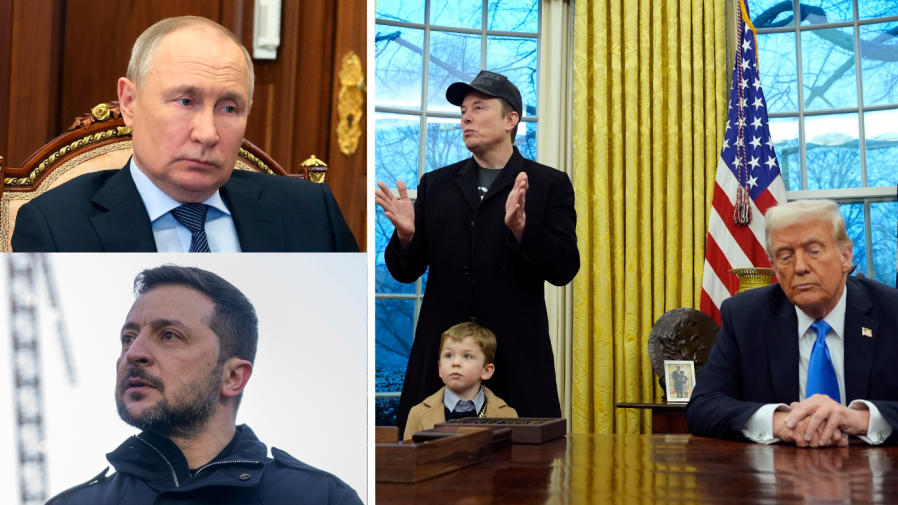Trump Pushes for Ukraine-Russia Peace Deal as House Considers Budget Negotiations
President Donald Trump has initiated efforts to broker a peace deal between Ukraine and Russia, while the House of Representatives prepares to deliberate on budget negotiations. These developments mark significant shifts in both foreign policy and domestic fiscal planning.
Trump’s Push for Ukraine-Russia Peace Negotiations
President Trump announced the beginning of peace negotiations between the United States and Russia regarding the ongoing conflict in Ukraine. Key points include:
Trump and Russian President Vladimir Putin agreed to start immediate negotiations during a 90-minute phone call. The U.S. president expressed confidence that both Putin and Ukrainian President Volodymyr Zelenskyy want peace. Trump suggested a potential meeting with Putin in Saudi Arabia.
However, this move has raised concerns:
Ukraine and European allies demand involvement in any peace talks. There are worries that Ukraine might be forced into territorial and political concessions. Former National Security Adviser John Bolton criticized the approach as a “sell out” of Ukraine.
House Budget Negotiations
The House Budget Committee has advanced a fiscal year 2025 budget resolution that aligns with the Trump administration’s agenda. Key aspects include:
Calls for $2 trillion in spending cuts that could affect Medicaid and other healthcare programs. Allows for up to $4.5 trillion in spending for tax cuts. Focuses on border security, defense, energy, and taxes. Meanwhile, the Senate Budget Committee has passed its own resolution:
Authorizes $85.5 billion in annual spending, offset by corresponding cuts. Part of a two-bill approach, with a second bill focusing on tax cuts and spending reductions.
Potential Impacts and Importance
1. Foreign Policy Implications:
A shift from the previous administration’s “nothing about Ukraine without Ukraine” policy. Potential realignment of U.S.-Russia relations and NATO dynamics.
2. Domestic Budget Considerations:
Significant changes to healthcare funding, particularly Medicaid. Potential long-term effects on tax policy and government spending.
3. Political Ramifications:
Reactions from both domestic political parties and international allies. Influence on upcoming elections and policy debates.
Background
The Ukraine-Russia conflict has been ongoing since 2014, with a full-scale invasion by Russia in February 2022. Previous U.S. administrations maintained a stance of support for Ukraine, with limited direct engagement with Russia during the conflict.
The budget reconciliation process is a legislative tool used to expedite passage of certain budgetary legislation in the U.S. Senate. As these situations develop, it’s crucial to monitor official statements, legislative progress, and international reactions for a comprehensive understanding of their potential impacts.









